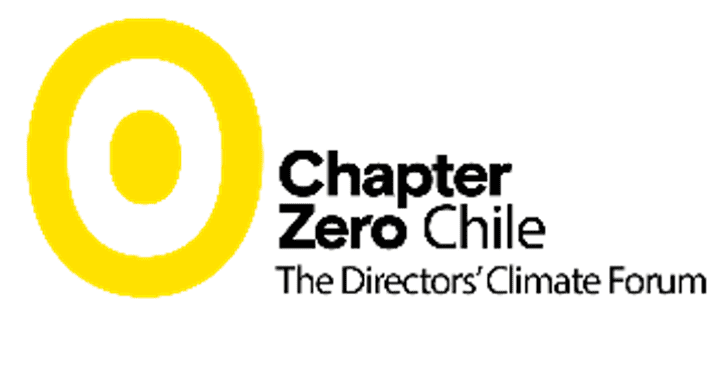The Financial Markets Commission (Comisión para el Mercado Financiero, or CMF) issued a strategy on 25 September 2020 to address climate change in the financial markets. The main objective of this strategy is to promote the disclosure of information related to climate change, as well as to promote the development of a green financial market and integrate climate risks into the risk assessments required of listed companies.
In this regard, the CMF recognized climate change as a financial risk that financial market participants must adequately manage. The work plan proposed by the CMF includes the following:
- The creation of a Climate Change Working Group within the CMF to develop a strategic climate change initiative.
- The participation of the CMF in the Green Finance Public-Private Board of the Ministry of Finance and in the work of the International Organization of Securities Commissions (IOSCO), the International Association of Insurance Supervisors, and the Network of Central Banks and Financial Supervisors to Greening the Financial System (NGFS).
- A plan to boost information disclosure through regulatory changes.
- Development of a plan to promote a green financial marketplace.
- The integration of climate risks into risk assessments. In the short term, this involves defining an international best practice framework for climate risk assessment, monitoring and management (such as the Task Force on Climate-related Financial Disclosure (TCFD) Recommendations, which are expressly mentioned) based on the partnerships the CMF has built.
The CMF also released ‘The Roadmap for Facing Climate-related Risks of the Financial Market Commission’ in April 2022.1 This roadmap lays down CMF’s regulatory objectives vis-a-vis proposed initiatives to mitigate climate change.
Subsequently, the CMF released the ‘New requirements of ecological, social and corporate governance disclosure’ in November 2022.2 This presentation summarizes the risks associated to sustainability, including climate change, along with the CMF’s role and strategy to tackle this matter.
There are several ongoing developments which may affect the legal and commercial context in which Chilean companies carry out their business. Chile’s goal of achieving carbon neutrality by 2050 forms part of the Climate Change Framework Law, which was enacted on 13 June 2022. The law contains guidelines for specific sectors on climate change adaptation and risk assessment based on the vulnerability of each sector.
Additionally, the Chilean constitution is currently undergoing a Constitutional reform process, ending with a public referendum on 17 December 20233. Although a preliminary draft has not yet been made, it is expected to have specific provisions regarding climate and ecological protection.
Directors' Duties and Climate Change
Law No.18,046, known as the Corporations Law, establishes certain fiduciary obligations for members of boards of directors to duly perform their management functions. Among these fiduciary duties, applicable to listed and non-listed entities, are the duty of care, loyalty, confidentiality, information, and accountability.
Chilean General Environmental Law No.19,300 establishes a general legal statute for environmental damage in Chile in its article 51. In relation to the liability of directors and officers, Chile does not have a systematic framework regulating criminal liability for environmental damage.
However, Chile’s regulation on securities and corporations does establish specific duties and levels of responsibility that directors must meet in acting as the governing body of a corporation. Firstly, Law No.18,046 establishes the liability of the board of directors as judicial and extrajudicial representatives of a corporation, along with their civil, administrative and criminal liability for acts or omissions of the corporation acting as a legal entity. Additionally, article 133 extends such liability to officers, establishing their joint and several liabilities for any damages caused to the company, the shareholders or third parties, in breach of Law No.18046, its Rules (contained in Ministry of Finance Supreme Decree No.702 of 2011) and the company by-laws.
Under General Rule No. 461, in-scope entities must undertake integrated reporting of all relevant ESG factors in all sections of their annual report, including disclosures on the profile of the entity, risk management system, strategy and business model and corporate governance practices similar to those contained in the now repealed General Rule No. 385.
The integration of ESG factors in the annual report, in particular the focus on climate change-related risks (on which, see below) is likely to gradually raise the level of diligence required for a director to discharge their duties to their company as General Rule No.461 comes into effect.
Directors' Disclosure Obligations and Climate Change
The CMF’s General Rule No.30 requires that listed entities periodically publish an annual report covering the information required in the mentioned General Rule.
In November 2021, the CMF issued General Rule No.461, which amends General Rule No.30 (and replaces General Rule No.385 on corporate governance issues) to require listed entities, banks, insurance companies, general fund managers and stock exchanges to disclose ESG-related issues in their annual reports.4 The CMF has explained that these issues are in line with international standards established by entities including the International Integrated Reporting Council (IIRC), the Global Reporting Initiative (GRI), the TCFD, the Sustainability Accounting Standards Board (SASB) and the International Organization of Securities Commissions (IOSCO).
General Rule No.461 requires in-scope entities to describe the systems put in place by the board to manage ESG risks, in particular the physical and transition risks arising from climate change (including, for example, consideration of the risks which may arise in a world with more than 2°C of warming); and to disclose the material risks and opportunities which the company may face, including the risks identified by the TCFD.5 Entities are also required, on a ‘comply or explain’ basis, to report on the SASB sustainability metrics relevant to their industries.6
In-scope entities may comply voluntarily with the requirement of General Rule No.461 from financial year 2022, and the requirements became mandatory for large corporations from 31 December 2022, and will become mandatory for small corporations from 31 December 2023.
Practical Implications for Directors
Given the increasing focus of the Chilean Government and securities and financial regulators on climate change and sustainability issues, including developments in integrated reporting obligations and potential legislation on national climate change goals, well-counselled directors of Chilean companies should:
- delegate the identification and evaluation of ESG factors, in particular climate change-related risks, to a clearly identified team in management which reports directly to the CEO and board;
- put on the agenda for the board within 3 or 6 months a process to start developing a climate transition roadmap to 2050 with transparent carbon neutrality or reduction targets, with clear interim targets to 2040, 2030, and within the current rolling multi-year strategic plan, and periodically thereafter report back to the board;
- delegate to the appropriate committee(s) of the board, such as risk, audit, legal and governance, scenarios/strategy, nominations/remuneration, or sustainability/corporate responsibility, the task of translating the long-term strategy into a clear decision-making process for each aspect that is relevant to each committee; and
- discuss disclosure obligations and best practice with counsel, in order to develop an external engagement and communications plan.
Contributors:
- Franco Acchiardo, Clyde & Co Chile
- Gustav Jacob, Clyde & Co Chile
 |  |
